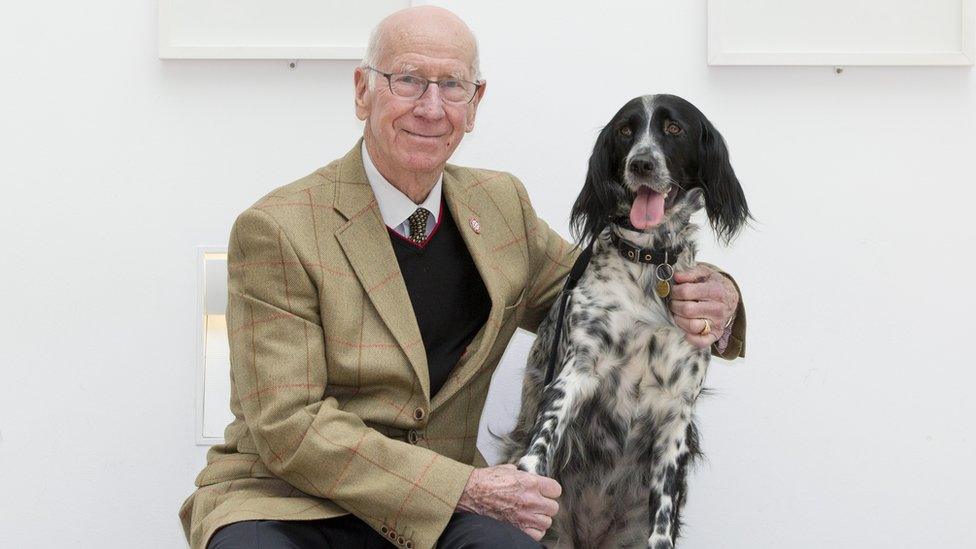Sir Bobby Charlton hails Glasgow University bone project
- Published

Sir Bobby Charlton meets Eva, the dog whose leg was saved by research carried out by his charity
Football legend Sir Bobby Charlton has visited Glasgow University to see a synthetic bone project funded by his charity.
Sir Bobby launched Find A Better Way after a visit to Cambodia where he saw the devastation caused by landmines.
The project combines several technologies to produce "off the shelf" bone tissue that can be stored and shipped for use around the world.
Bone is a limiting factors in the treatment of landmine blast survivors.
When too little bone survives to fit a leg or arm prosthesis this can severely limit quality of life.
Along with other uses, it is hoped the project's synthetic bone will provide reconstructive surgeons with more options.
Four-legged friend
The synthetic bone project made headlines last year when William Marshall, a veterinary surgeon from the University's Small Animal Hospital, contacted lead researchers Prof Manuel Salmeron-Sanchez and Prof Matt Dalby.
Mr Marshall was treating a young Munsterlander named Eva who had suffered a broken leg.
Following a series of complications amputation was the only option available using conventional medicine.
Although not a planned stage in the project's development, the three worked together to create an early-version of the treatment to try and save Eva's leg.
The result was extremely successful and Eva is expected to live a normal, happy life as a four-legged dog.
Sir Bobby, who played for Manchester United and England during his career, met Eva and her owner, Fiona Kirkland, during his visit.
The World Cup winner said: "I am very proud that Find A Better Way and the University of Glasgow are working together to do so much good for people in so much need.
"It has been wonderful to meet the scientists making this possible, and of course wonderful to meet Eva who has given us a glimpse of what will be possible in future."
Last August the first Sir Bobby Charlton Centre was opened in Amman, Jordan to help Syrian and Iraqi refugees recover from both physical and mental trauma.
- Published1 November 2011
